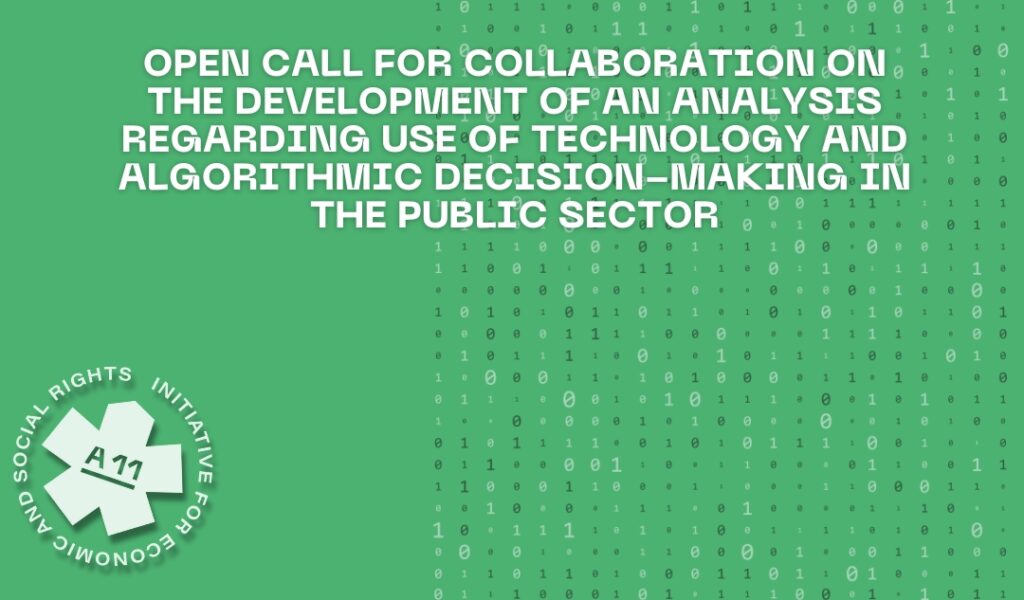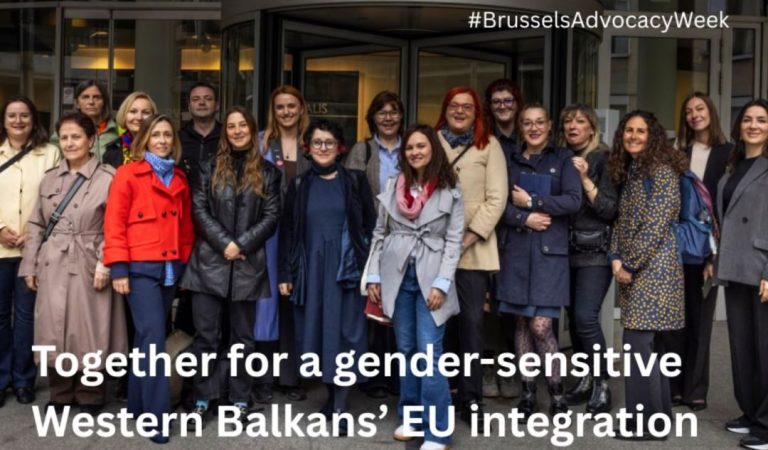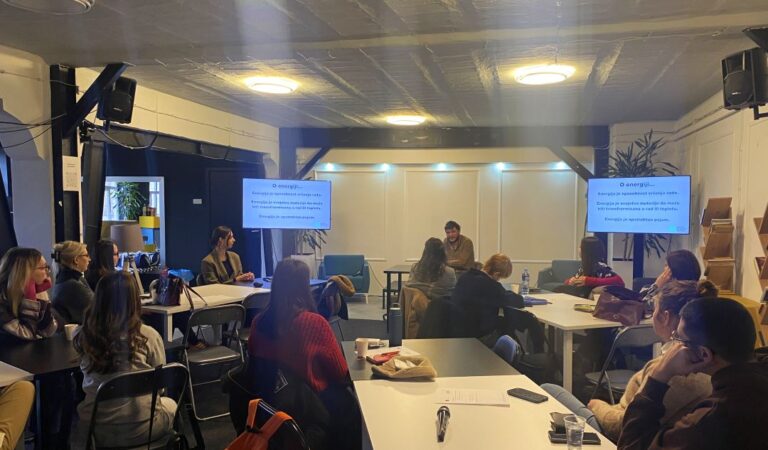For applicants
1. Background
In the context of increasing use of technology and algorithmic decision-making in public services, it is essential to understand their impact on the protection and promotion of economic and social rights. Serbia is one of the countries with the rising interest in the use of algorithmic decision-making, and the Government regularly announces the investments into the use of technology in the public sector.
Discussions about the use of artificial intelligence and development of the Strategy for the Development of Artificial Intelligence in Serbia, and potential regulation of the use of artificial intelligence in Serbia, will potentially accelerate the use of technology-driven public services, including those based on automated decision-making systems.
Cases of disproportionately negative effects of algorithmic decision-making on the most vulnerable population can already be seen, such as the use of Social Cards in the social protection system in Serbia, resulting in more than 44,000 individuals losing their social benefits, mostly without due process of the law, and with disproportionately negative effect of such legislation on Roma population.
The A 11 Initiative, with the support of Digital Freedom Fund launched the project “Strategic litigation against digital surveillance of social protection in Serbia”, focusing on issues brought by the Law on Social Card and implemented by the Social Card Registry.
The project explores the social protection system and the use of algorithmic decision-making processes introduced by this piece of legislation, and analyzes experiences from countries that have successfully tackled the use of discriminatory technologies and algorithmic decision-making in public services.
Some of the activities on this project include: field research, interviews, and focus groups with individuals affected by this system, comparative legal analysis aimed at building knowledge about the experiences and practices of successful struggles against the use of discriminatory use of technology in the public sector, and other activities. The project will conclude with the joint workshop for discussing different legal strategies against discriminatory legislation and practices related to the use of technology and algorithmic decision-making affecting the access to economic and social rights.
Because of this, the A 11 Initiative needs to understand better how different countries address the issue of algorithmic decision-making in the public sector, particularly in access to economic and social rights, i.e. labor rights, the right to social security, the right to education, healthcare and adequate housing, through comparative legal analysis.
This comparative legal analysis aims to provide insight into different legal frameworks and safeguards against discriminatory technologies to ensure the rights of most vulnerable individuals and communities are upheld.
2. Objective
The primary objective of this analysis is to gain knowledge about how different countries have regulated algorithmic decision-making in public services, and how different stakeholders have legally tackled discriminatory effects of technologies and algorithmic decision-making in public services, with a focus on protecting most vulnerable individuals and communities.
3. Scope of Work
The contractor will undertake the following tasks:
Literature Review:
• Conduct a comprehensive review of existing literature on the use of technology and algorithmic decision-making in public services, especially services related to access to economic and social rights.
• Identify key issues related to discrimination and most vulnerable individuals and communities in the context of these technologies.
Legal Framework Analysis:
• Analyze legal and policy frameworks of different countries that have implemented measures to regulate the use of technology and algorithmic decision-making in public services.
• Provide a comparative analysis of the identified legal issues, gaps and outcomes of such regulations.
Recommendations:
• Provide recommendations for improving the legal and policy framework in Serbia looking to address algorithmic decision-making in public services and their potentially discriminatory effects on most vulnerable individuals and communities.
4. Deliverables
Inception Report:
A detailed plan outlining the methodology, timeline, and resources required for the analysis.
Submission within two weeks of contract commencement.
Draft of the Analysis:
A comprehensive report including literature review, legal and policy framework analysis, case studies and recommendations.
Submission within eight weeks of contract commencement.
Final Report:
A revised report incorporating feedback from the draft report. Submission within ten weeks of contract commencement.
5. Timeline
The A 11 Initiative plans to commence with this cooperation in the beginning of September 2024.
Provisional time frame for the assignment:
• Inception Report: 2 weeks from contract start date.
• Draft Final Report: 8 weeks from contract start date.
• Final Report: 10 weeks from contract start date.
6. Qualifications
The contractor should possess the following qualifications:
• Advanced degree in law, public policy, social protection, or a related field.
• Extensive experience in conducting legal and policy analyses and comparative studies.
• Strong understanding of technology and algorithmic decision-making in public services.
• Excellent research, analytical, and writing skills.
Experience working with or advocating for most vulnerable individuals and communities will be an asset.
7. Evaluation Criteria
Proposals will be evaluated based on:
• Relevant experience and qualifications of the contractor (30%).
• Understanding of the project scope and objectives (30%).
• Proposed methodology and timeline (20%).
• Cost-effectiveness of the proposal (20%).
8. Submission of Proposals
Interested contractors should submit their proposals by August 20, 2024 via e-mail to: office@a11initiative.org. The proposal should include: 1) Provisional plan and methodology for completing the task, 2) CV, 3) Budget breakdown.
9. Contact Information
For any queries or further information, please contact: office@a11initiative.org.
In Belgrade, July 30, 2024



